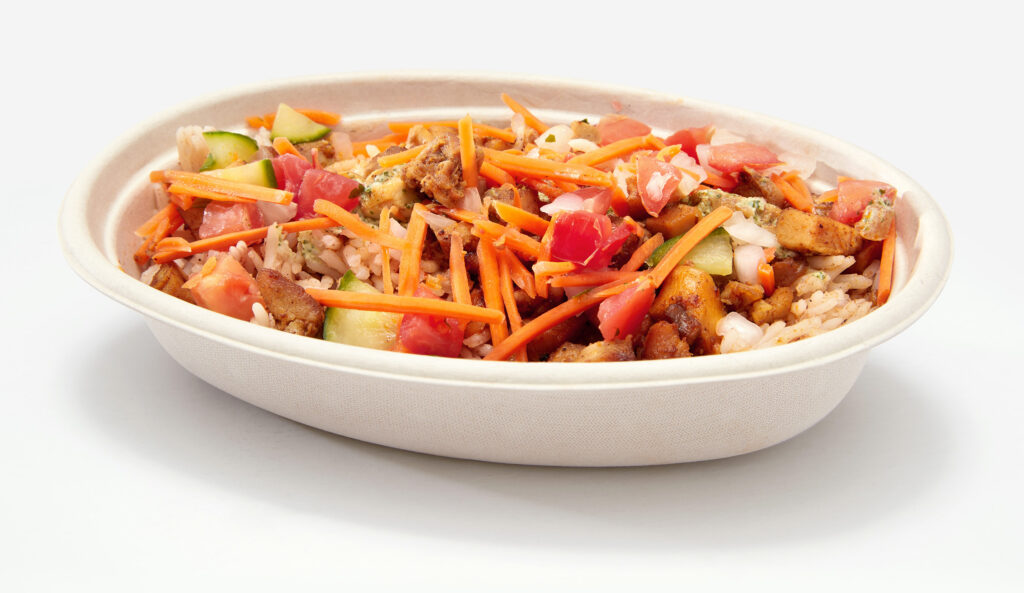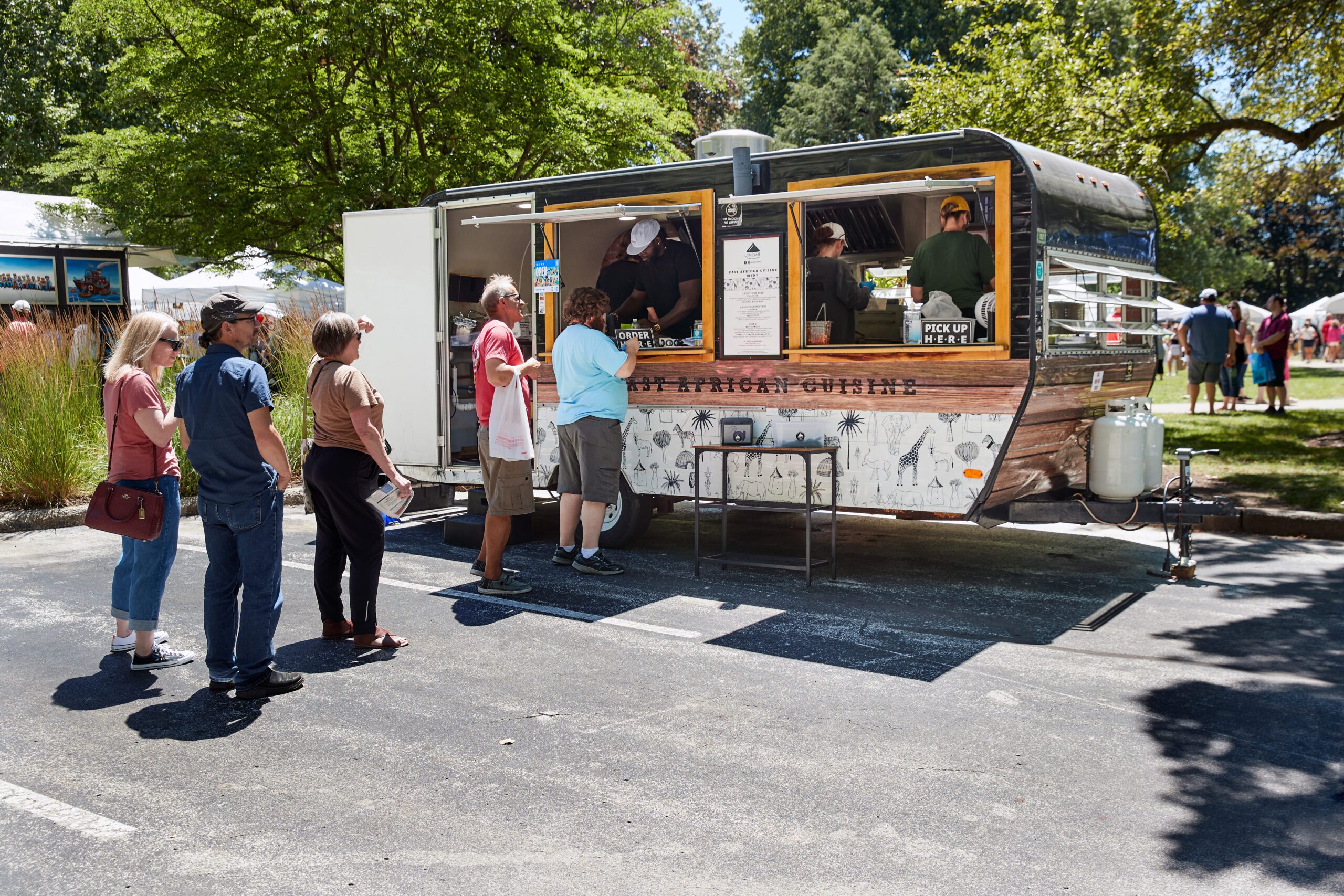Jikoni serves up more than East African cuisine
TOLEDO – For my first column, I want to introduce Jikoni, a local food truck bringing East African cuisine to the masses. I caught up to them at Toledo Botanical Garden’s Crosby Arts Festival.
Jikoni means “kitchen” in Swahili, which is the language most prominent in East Africa. Chef and owner Tom Otieno hails from Kenya and crafts popular dishes similar to those served in East Africa, South America and Afghanistan.
Using fresh ground spices for vibrant flavor, Jikoni offers a curated collection of savory bowls, including pilau chicken and red bean curry over coconut rice and pilau rice, along with chapati (soft flatbread) and samosas. For dessert, Jikoni offers a selection of savory sweets, including cardamon coffee cake and mango tarts. Rich flavors are built using a combination of cardamon, ginger, cumin, black pepper corns and cinnamon. Fresh cilantro, green onions, carrots and tomatoes embellish these dishes.
Jikoni uses a commissary kitchen to prepare food to better execute food service. Marinating ingredients overnight, roasting and braising in the morning, and assembling relishes and fresh chutneys before heading out are keys to quick service and repeat customers. All the meats are prepared in advance and kept warm at safe holding temperatures for service, then packed in insulated travel containers taken to the destination.
Jikoni is a tow-behind trailer with limited space, so the menu is limited to just a few options. Fast service is their priority, averaging five orders per minute at peak speed. Otieno said that “long lines are no indication of quality, but more of an operator’s process.”


Before catering large events, communication with organizers is important for a successful day. They inform vendors with metrics specific to attendance, weather, cost and permitting. Electricity is often provided on a first-come, first-serve basis. Having electricity allows for overnight storage in onboard refrigerators, minimizing back and forth.
Site selection is one of the most important considerations because friers and grills create heat, and weather can be hot and humid. It helps to park in shade with open windows for cross-ventilation. It is also best to not be located in corners where hungry shoppers pass other vendors whose lines extend in front of the truck. Menus can be tailored to specific tastes or account for allergies or gluten intolerance.
Operating a food truck is erratic. Retaining help is difficult with no formal schedule. Jikoni relies on referrals and collegiate labor for assistance. For big events on long weekends, it is common to miss sleep due to long days and so much preparation.



Like any business, it helps to have a bookkeeper who can record expenses and income, and file taxes. Without a formal location, constant marketing is critical for notifying people where and when they operate. Having a trusted partner would be a big advantage, and Otieno has been working to bring his sister to the United States to aid in the operation. She knows the history of the food, the way it is supposed to taste and be presented and can answer questions.
Jikoni also offers cooking classes, private in-home dinner parties and catering for large organizations. Jikoni will be releasing a new line of graphic t-shirts and sweatshirts in the next couple weeks and have plans to launch a redesigned website later this year.
You can find them on Instagram and Facebook (Jikoni Toledo) and on the StreetFoodFinder app and website.




























